lokal treats
lokal treats
A speculative service to facilitate the exchange of exotic food for times when the world supplies run low.
A speculative service to facilitate the exchange of exotic food for times when the world supplies run low.

Climate change will drive human migration more than any other event before. Migration to countries like Denmark will rise significantly. Services will need to be able to handle the systemic changes from an increase in migration. How will a future increase in climate migration, both internally and across borders, affect cities like Copenhagen? What future services can we imagine to help people propelled away by environmental catastrophes better integrate and flourish in a new city? This is the brief that we explored during an intensive 2.5 weeks service design course at CIID.
Climate change will drive human migration more than any other event before. Migration to countries like Denmark will rise significantly. Services will need to be able to handle the systemic changes from an increase in migration. How will a future increase in climate migration, both internally and across borders, affect cities like Copenhagen? What future services can we imagine to help people propelled away by environmental catastrophes better integrate and flourish in a new city? This is the brief that we explored during an intensive 2.5 weeks service design course at CIID.
Copenhagen, 2048
In 2048, the high price of foods from region of the world affected by climate changes forces the last falafel shop in Copenhagen to close its doors. All around the world, climate change has displaced populations and reduced the food production of ingredients like chickpeas that are facing acute shortage. As prices rise, governments have started to introduce new measures to regulate access to certain food goods for their citizens.
In 2048, the high price of foods from region of the world affected by climate changes forces the last falafel shop in Copenhagen to close its doors. All around the world, climate change has displaced populations and reduced the food production of ingredients like chickpeas that are facing acute shortage. As prices rise, governments have started to introduce new measures to regulate access to certain food goods for their citizens.
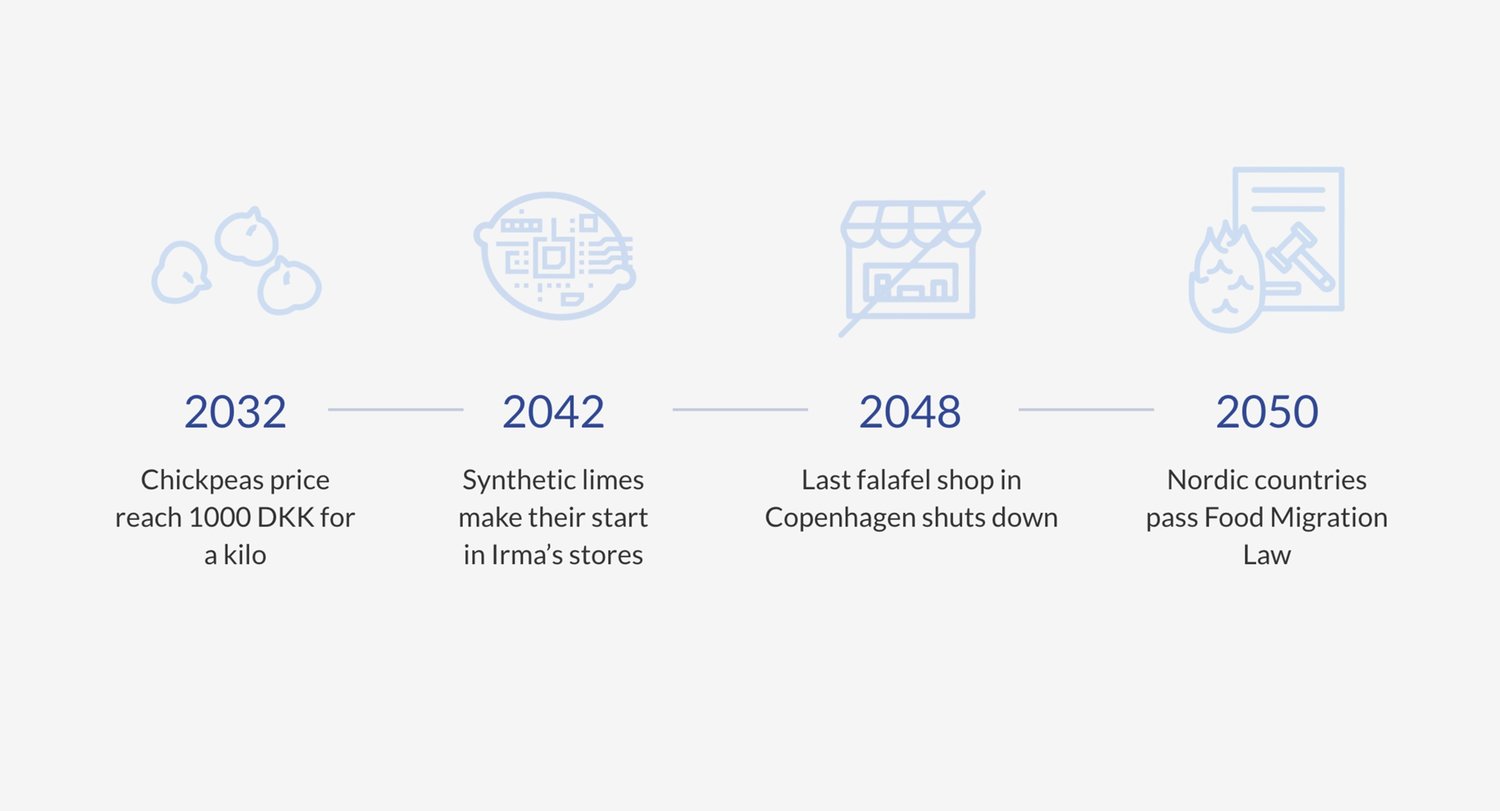
To counter these restrictions, Denmark passed a new immigration policy to reintroduce the once cherished exotic tastes to its citizens: the food visa.
To counter these restrictions, Denmark passed a new immigration policy to reintroduce the once cherished exotic tastes to its citizens: the food visa.
Rare natural ingredients are now distributed by embassies to corner stores in the city who then resell these ingredients to the holders of a foreign passport from the food’s country of origin. In this food market, the rest of the locals must purchase their exotic foods directly from those who hold special access to it.
Rare natural ingredients are now distributed by embassies to corner stores in the city who then resell these ingredients to the holders of a foreign passport from the food’s country of origin. In this food market, the rest of the locals must purchase their exotic foods directly from those who hold special access to it.
OCCIDENTAL GOVERNMENTS INTRODUCE STRATEGIC ASYLUM POLICIES TO ATTRACT EXOTIC FOOD GOODS

Introducing lokal treats, a service that facilitates the exchange of ethnic food items between
newly-arrived climate migrants and the locals of Copenhagen.
Introducing lokal treats, a service that facilitates the exchange of ethnic food items between newly-arrived climate migrants and the locals of Copenhagen.
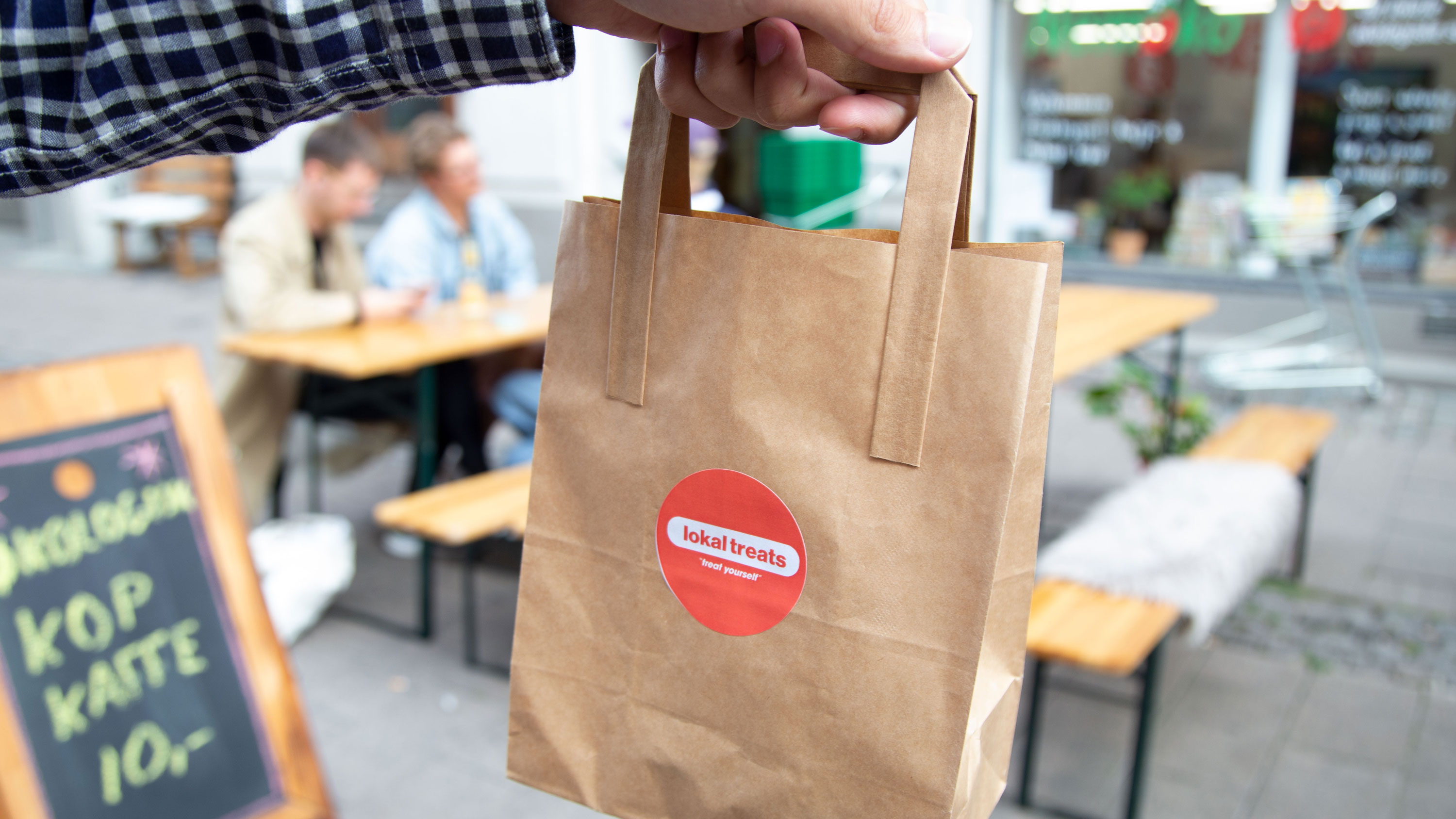
Discovery
A grocer partnering with lokal treats introduces the customer to the service when they ask to buy rare ingredients.
A grocer partnering with lokal treats introduces a customer to the service when they ask to buy rare ingredients.
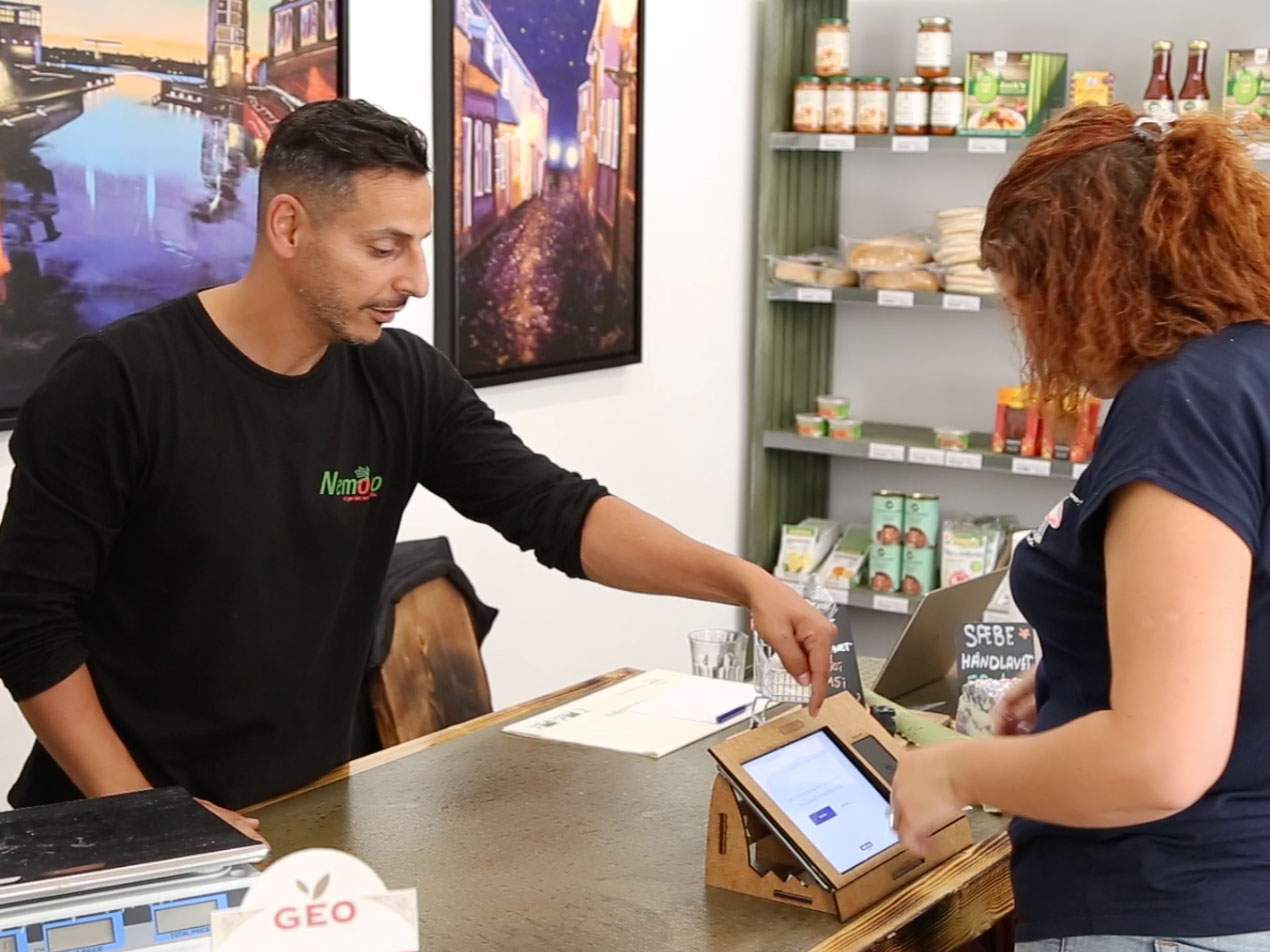
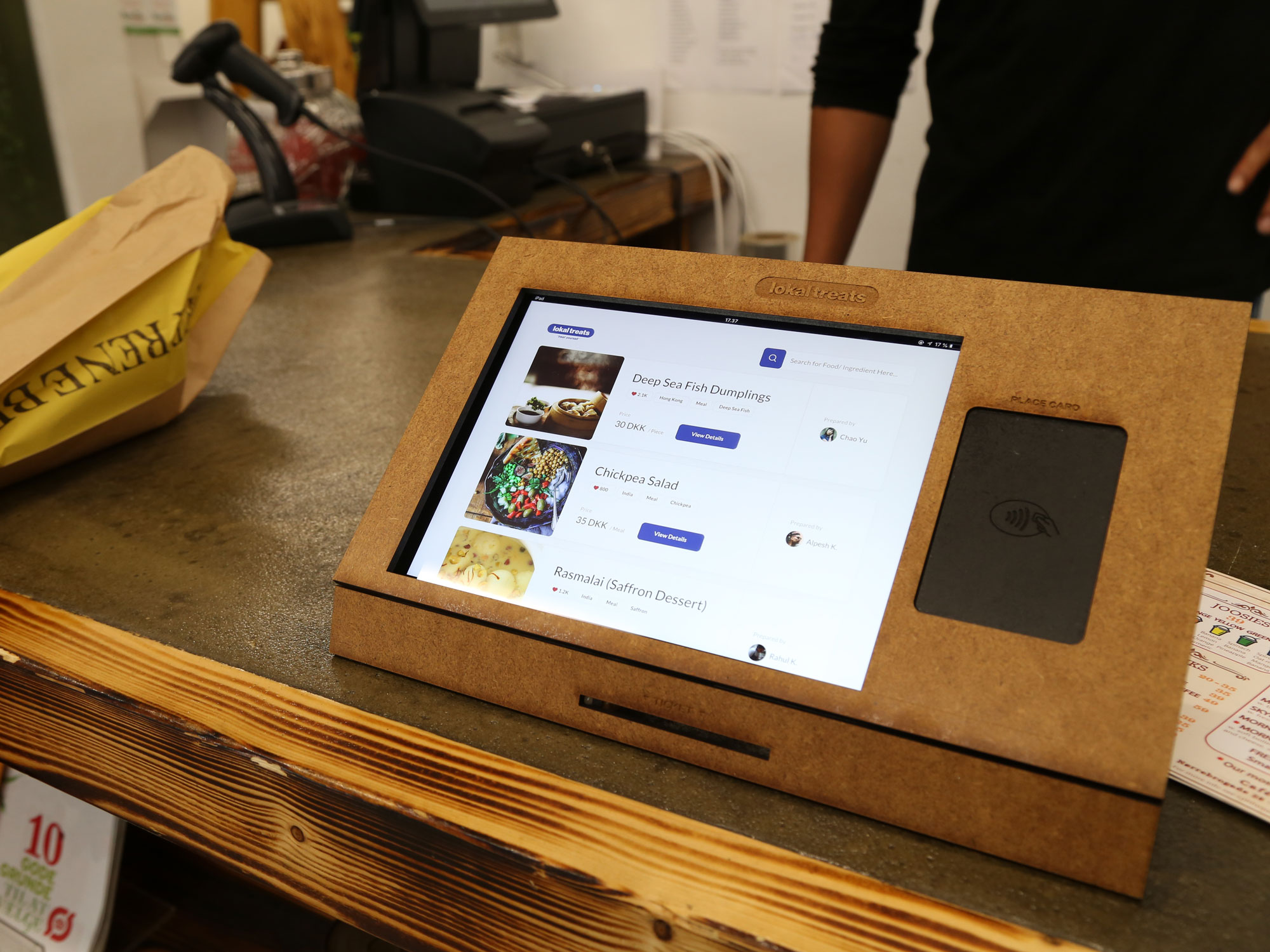
Shopping
On the kiosk, the customer can find people in the neighborhood selling specialities made from rare ingredients and sold under the authority of the shop.
On the kiosk, the customer can find people in the neighborhood selling specialities made from rare ingredients and sold under the authority of the grocer.
Purchase
A ticket is issued with the seller's contact information to arrange a meeting.
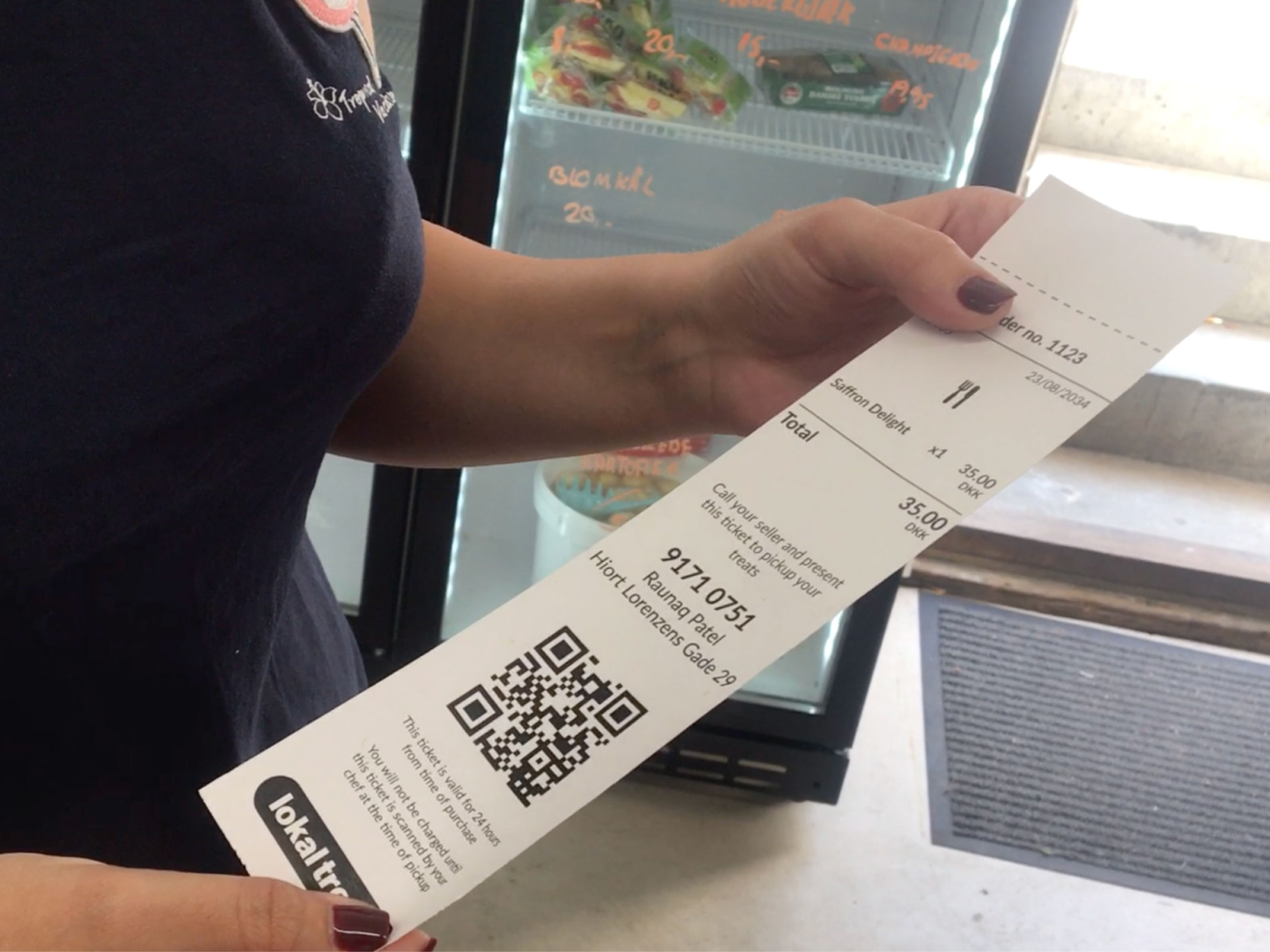
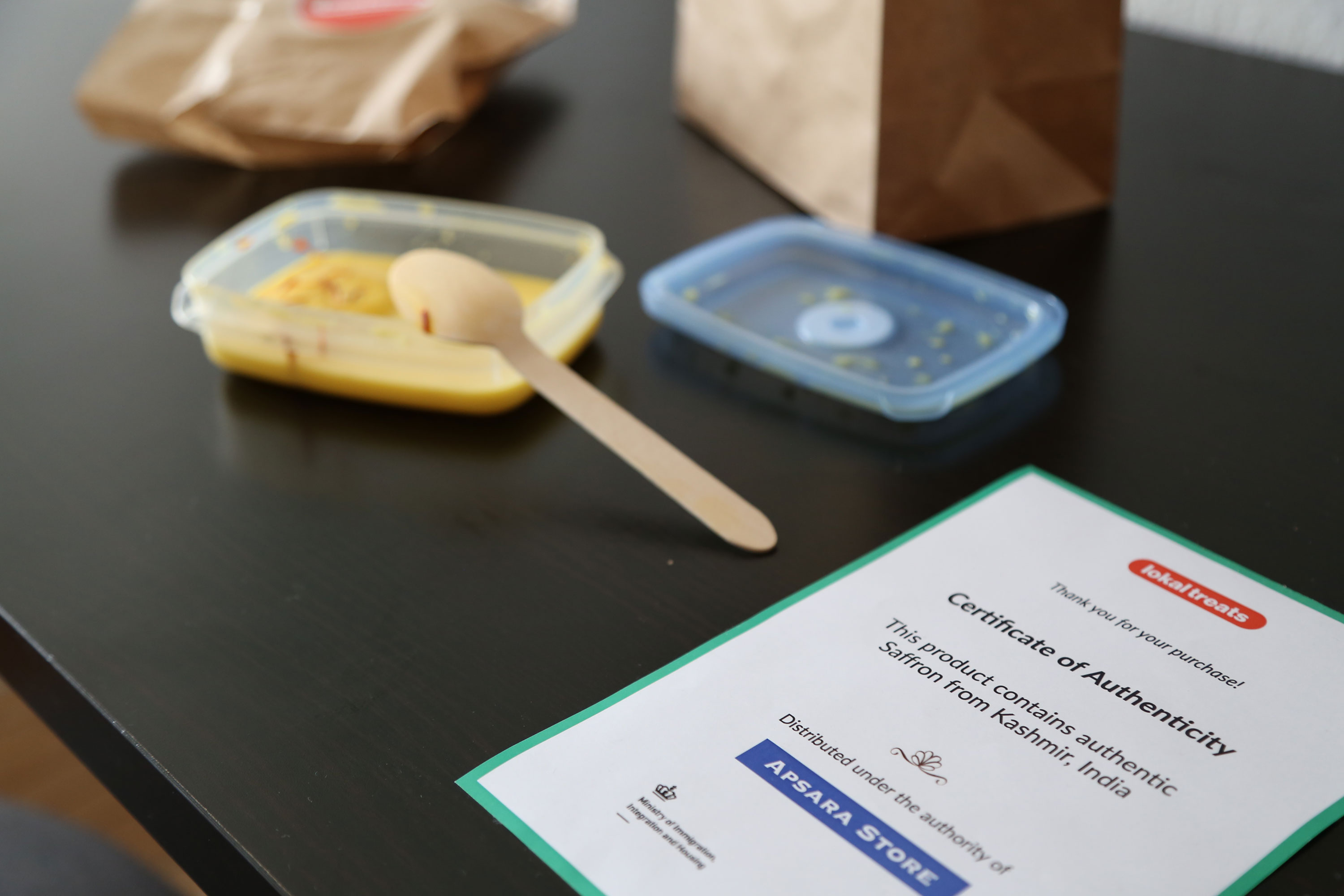
Exchange
After arranging a meeting place and time, the food parcel is handed over with a certificate of authenticity.
Developing fidelity
Customers can download the app to follow their favorite chefs and use the surprise me feature to discover new recipes from the people they have been visiting regularly.

SERVICE MAP
SERVICE MAP

Denmark's relation to immigration
To understand the context of climate migration we started by consulting experts in climate displacement and in the current refugee crisis. At the same time, we investigated the effects of immigration on different residents of Copenhagen by talking with danes of origin, well settled locals and newcomers as well as corner stores and restaurants implanted in the multicultural neigborhoods of Copenhagen.
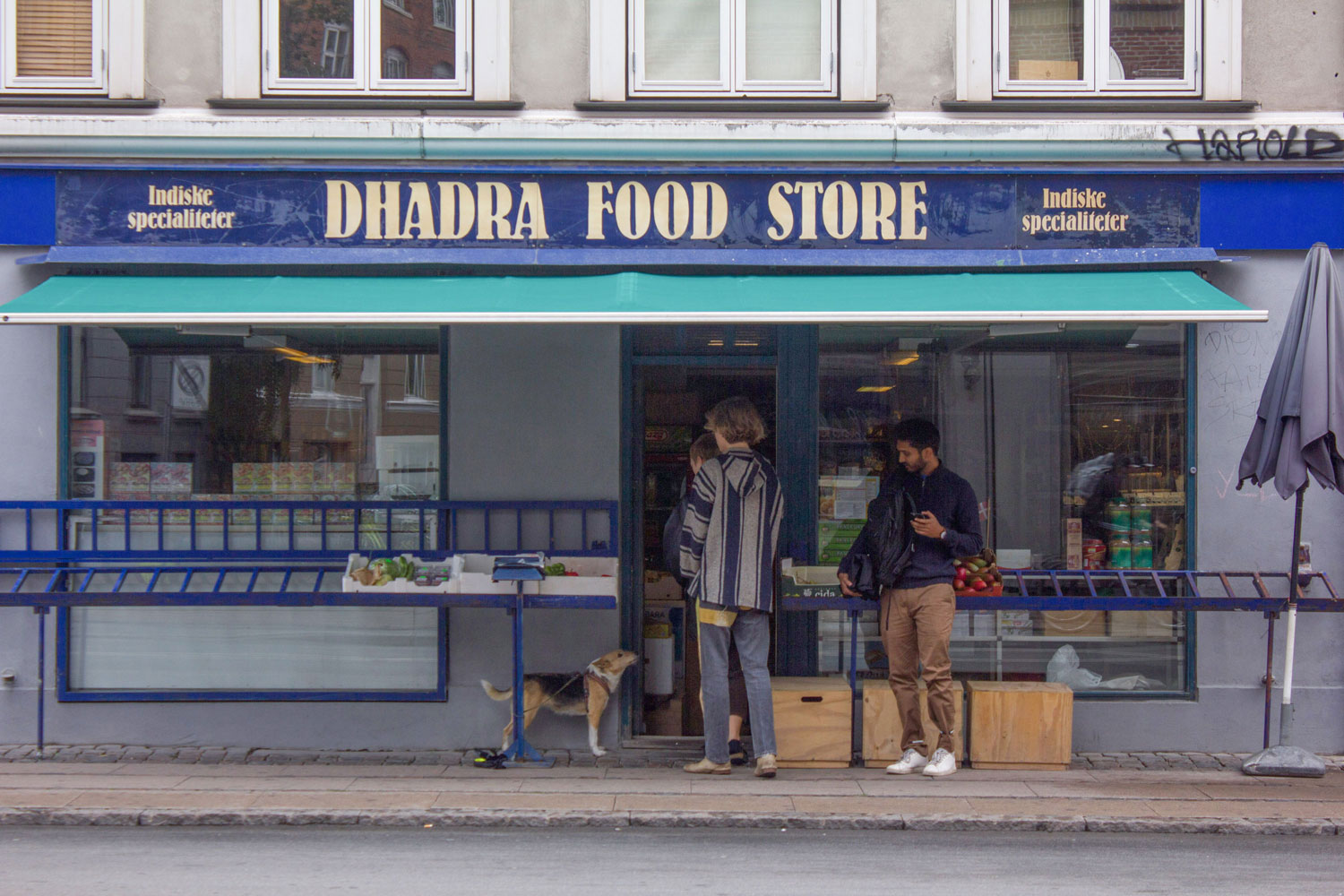
“You couldn't find chickpeas here before.”
– Rasmus, dane who regularly buys chickpeas from his neighborhood's indian store
From these conversations we gatehred that danish locals seemed to be primarly opened to other culture when certain elements of these cultures aligned with their own personal aspirations. Building on this unexpected insight and a multitude of signals gathered during our research, we constructed an intentionnaly provocative future scenario to reframe this selective cultural preference as a cornerstone of Denmark's future immigration policies. In this future environment we imagined, we designed a service to meet the needs of the three actors we identified as central players in the shifting food culture of Copenhagen : the local, the recently arrived immigrant and the grocery store owner.
Prototyping the experience
After conceptualising the service in depth, we decided to take a few step back and started by prototyping analog versions of key moments of the experience. To understand the needs of each actor of the service, we started by creating a mock version of a resale market for exotic ingredients based in the neighborhood corner store. With the help of the owner of the shop, we then took people through the experience of purchasing saffron delicacies from a member of the team posing as a neighbor. In parralel, we set up a booth in front of larger supermarkets to invite people to test whether people could consider posting an ad for something they just purchased.
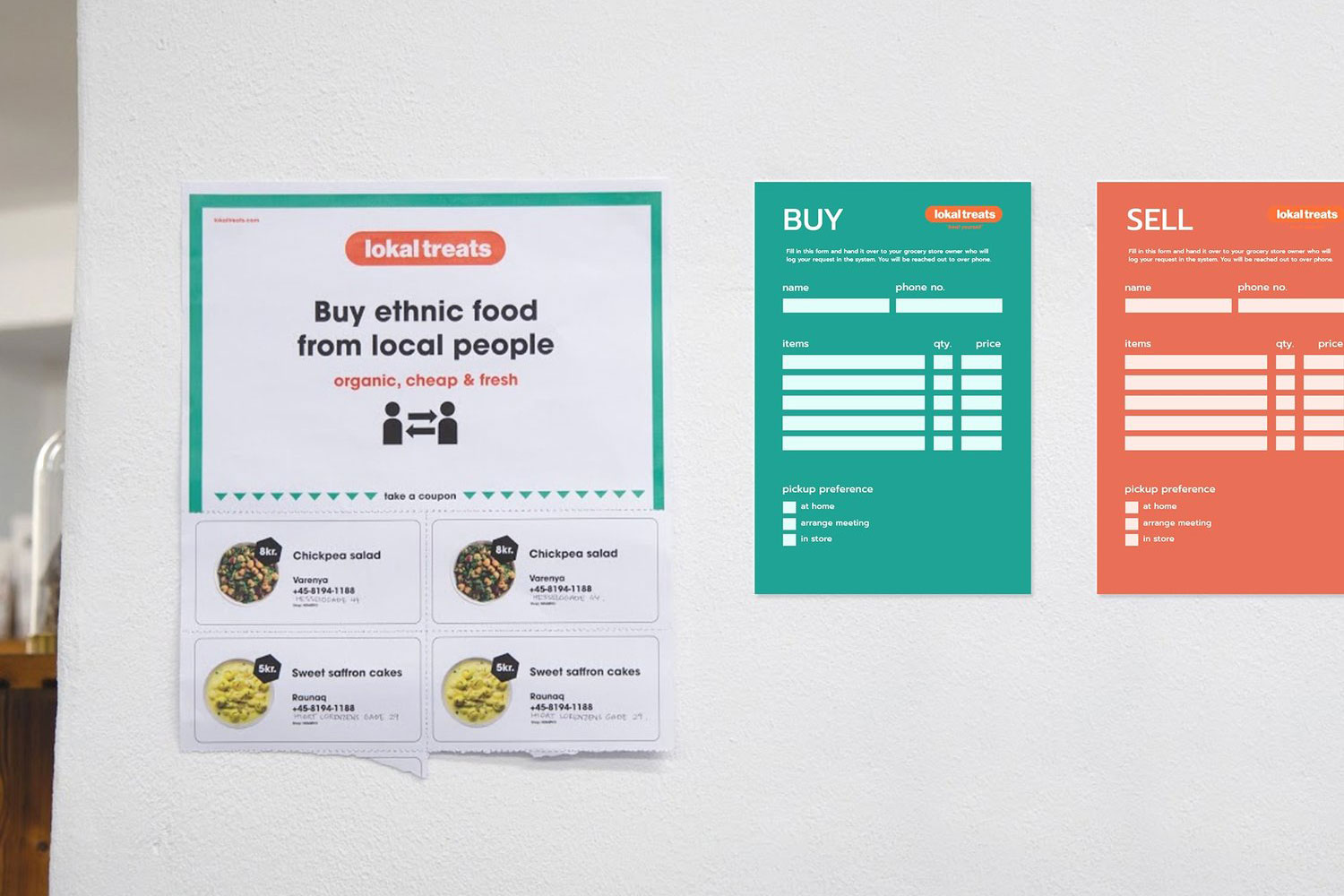
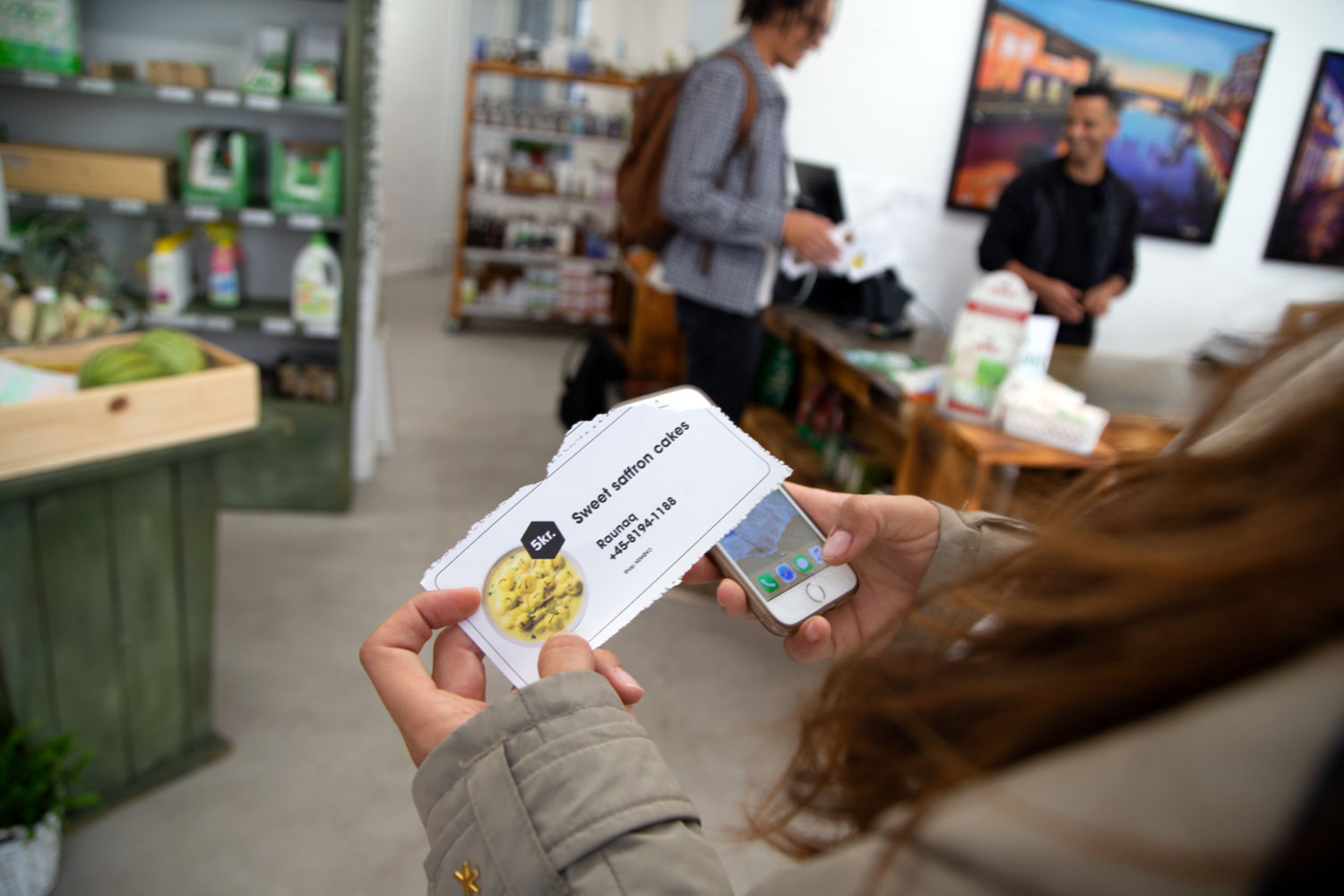
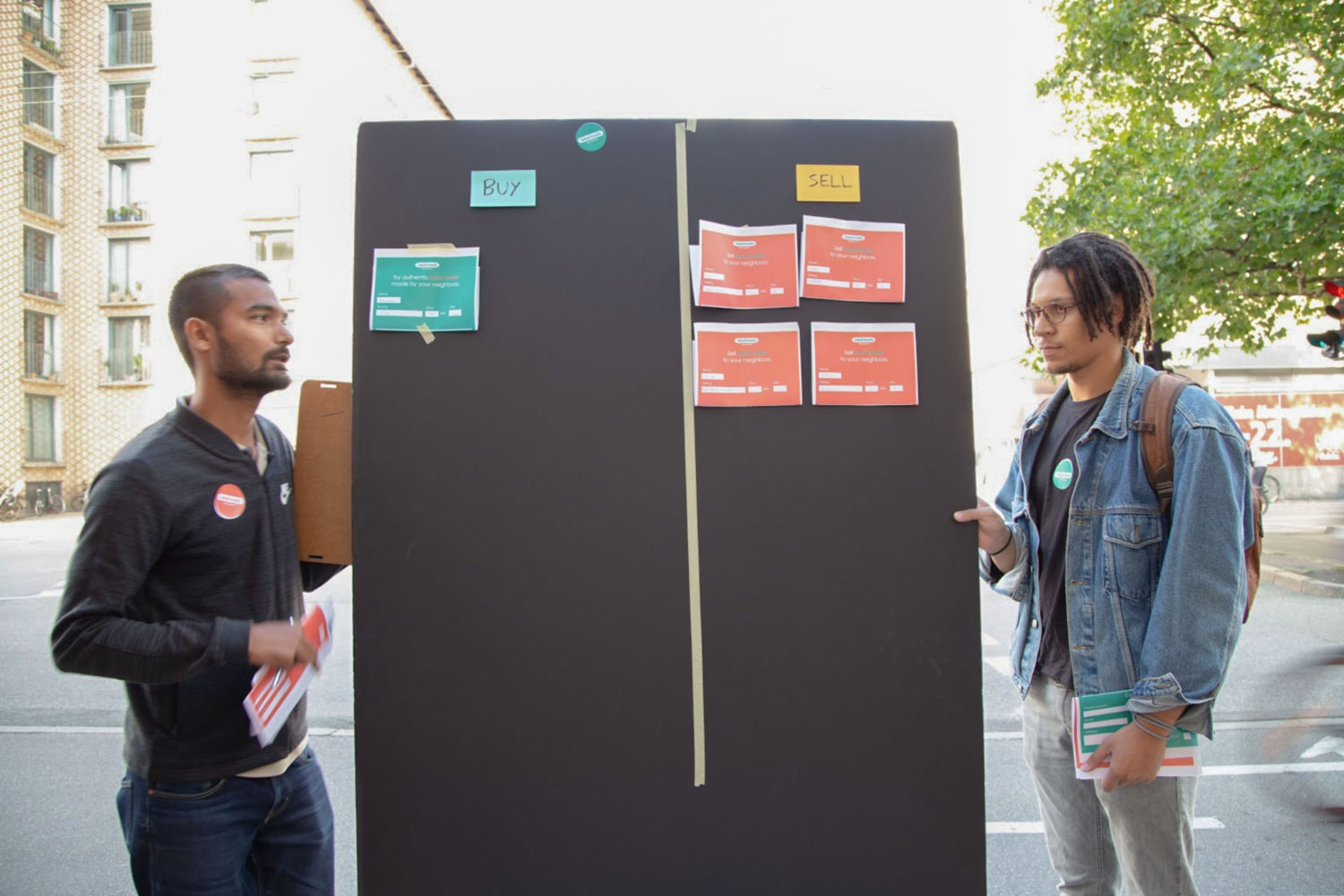
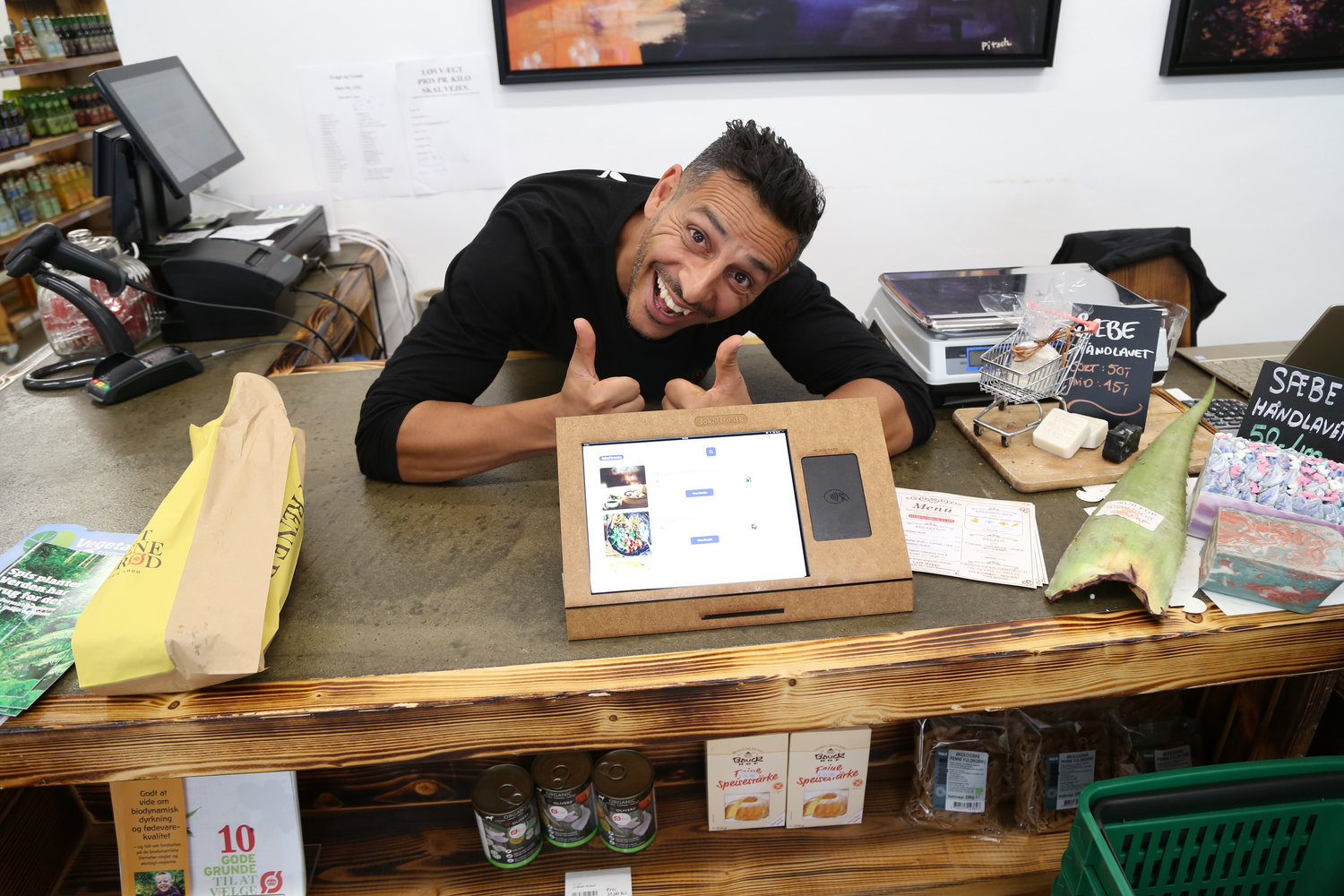
KEY LEARNINGS
- Allow the user flexibility of space and time to explore the service offering. This meant having an app where people can browse offerings and not force them to make on-the-spot decisions
- “These people are the ones you can get the saffron from.” said one shopkeeper. We hadn’t made the shopkeeper feel vested in the service
- People like the idea of sharing food more than the activity. While eating together with the chef would make a lovely marketing campaign poster, it’s not what people want to do.
Building on these learnings, we created a second iteration of the transaction at a higher fidelity, incorporating adjustements based on what we learned from our first experiments and went back on the field to test it with success.
Team : Reuben Jerome Dsilva, Varenya Raj, Chaeri Bong, Raunaq Patel
Role : Design Research Framing, Concept Generation, Experience Prototyping, Video Production
Faculty : Francesca Desmarais, Eilidh Dickson
Get in touch
Get in touch
Get in touch
Get in touch
sami.desir@gmail.com
sami.desir@gmail.com
sami.desir@gmail.com
sami.desir@gmail.com
Projects
Projects
Projects
Projects